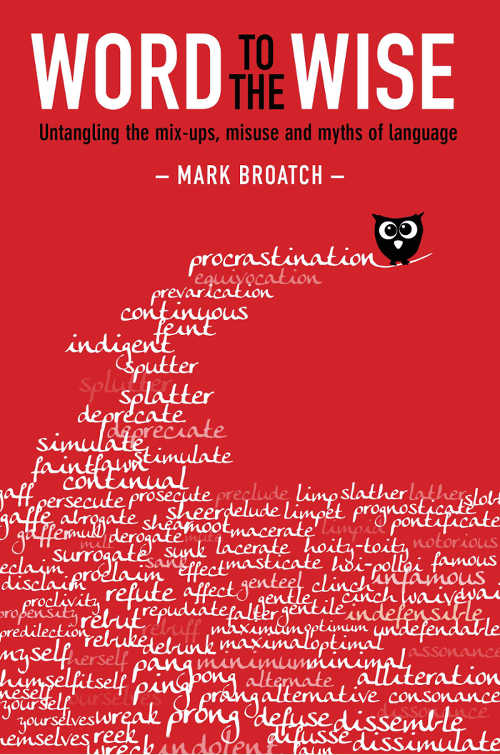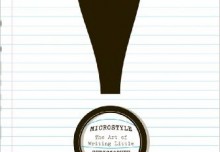Do you know the difference between exalt and exult? Or fewer and less? If not, you’re not alone.
Whether it’s a news story claiming a murder was grizzly to a real estate proposal promoting a shopping centre as being penultimate, mistakenly using one word when you mean another can ruin your message.
That’s why I like Word to the Wise by Mark Broatch – it’s an easy to read (and occasionally amusing) book that promises to untangle the mix-ups, misuse and myths of language.
The book is an A-Z (well, A-W) guide – and to give you a taste, here are four examples from different letters (republished with the author’s permission):
C
Despite their appearance, crapulence and its adjectives crapulent and crapulous have nothing to do with excrement or poor quality, despite what you might read in some places (or see: The Simpsons). They seem to be misused as synonyms for general crappiness or mentally wallowing in an unhealthy environment, such as immorality or lowbrow television habits.
They are literary words for drunkenness and drunken behaviour, coming directly from a Latin word for very drunk. An older meaning is also given of illness or indisposition resulting from excessive drinking or eating.
D
For writers outside the US, the distinction between further and furthest for metaphorical distances and farther and farthest for literal distance is disappearing. Further and furthest now provide everything you need.
In the US, however, the distinction appears to be becoming stronger. While the two have previously been interchangeable when discussing distance, increasingly farther is being preferred for distance (farther east) and further when the ideas are about addition (further questions).
E
To exalt is to praise or speak very highly of someone or something (the website exalted Hitler) or to raise them to a higher level or rank (exalt the poor). To exult is to show or feel great joy, often in triumph over another (exult in the win).
F
Both fewer and less mean ‘not as many’, but fewer applies to things able to be counted individually — and always of people.
Less applies to things that can’t be counted individually, as well as time, money, distance and weight.
In less than 100 days rather than fewer than 100 days. If a sentence takes a singular verb — four minutes is …, 5 kilometres is …, $1 million is …, 40 kilograms is …, 30 percent is … — then you can use less; countable things usually take a plural verb and so use fewer. If it’s a target or if numbers provide the size of a quantity — 50 runs, 20 points, 100 pages, 1200 words, 20 calories — you can use less. It is always one less bicycle or apple or elephant than previously, not fewer.
You can buy Word to the Wise direct from the publisher and from Amazon.





